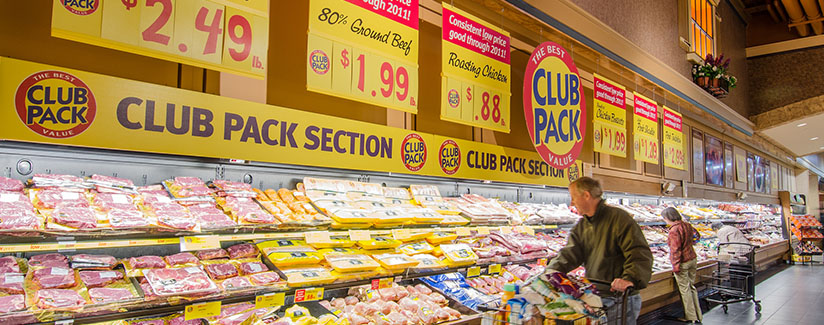
What Causes the Price of Food to Rise?
Are you concerned about food prices? Last year, we looked at how drought affects the price of food, and unfortunately, many parts of the United States are still experiencing drought conditions. On average, Americans spend about 10 percent of their income on food, according to the Bureau of Labor Statistics. But what affects food prices each year? To answer this question, we reached out to Dr. Marc F. Bellemare, Assistant Professor, Sanford School of Public Policy, Duke University.
What affects world food prices?
Dr. Bellemare:
Episodes of extreme temperature drive increases in food prices. There’s a clear causal relationship between climate and food prices and crop yields. Drought and temperature are correlated. However, more than drought, it’s actually episodes of extreme temperature which result in higher food prices.
Drought is a really poor predictor of crop losses. What’s a very good predictor of crop losses is temperature patterns. The more days you have temperatures above 28 degrees C (82 degrees F), the worse you can expect crops to fare, which increases food prices. Proceedings of the National Academy of Sciences actually show when temperatures rise above about 28 degrees C, you see a sharp drop in crop yields for about every major commodity, be it maize (corn), soybeans, wheat or rice.
Does the price of oil affect food prices?
Dr. Bellemare:
Yes, the price of oil also affects food prices. When we buy food, we’re not just buying the commodity – we’re paying for transportation and labor costs. We have to pay people to grow it and harvest it, along with transportation and processing. The price of oil affects transportation costs, which then affects the price of food.
Does the price of land affect food prices?
Dr. Bellemare:
The price of land does affect food prices. Land is one of the core inputs in the production of food. However, I don’t think land is as much of an important driver of food prices lately. Really, it’s transportation costs, labor costs, and a little bit of scarcity.
If food prices are high in other parts of the world, will that affect food prices in the United States?
Dr. Bellemare:
The two are correlated; there’s no denying that if the price of food rises in the rest of the world, it will also affect prices in the United States. However, the causal direction of what’s going on is the opposite. When we have poor crops here in the United States, we can expect prices to go up in the rest of the world. As a reaction to those higher food prices in the United States, what happens in foreign countries, where food security is not what it could be, food prices tend to increase. When those countries impose export bans or restrictions on free trade to make sure they have enough food for their own citizens, the unintended consequence is that they tend to drive food prices up even more. It can become a spiraling bubble. In that sense, food prices elsewhere might affect what’s going on here in the United States, but it would be a far-reaching consequence.
Is there a solution to increasing food prices?
Dr. Bellemare:
We need to come up with drought- and extreme temperature-resilient grains and feeds with better technologies. These technologies are genetically modified (GMO) crops, and unfortunately, many people have a knee-jerk reaction when they hear that term. But, perhaps the solution to hunger is through biotechnology and GMO crops.
Here are some tips on how to handle rising food prices from Dr. Helen Jensen, an economics professor at Iowa State University: How are American Consumers Handling Rising Food Costs?
“110303_CNPP_LSC_0161” by USDA is licensed under CC BY.


























